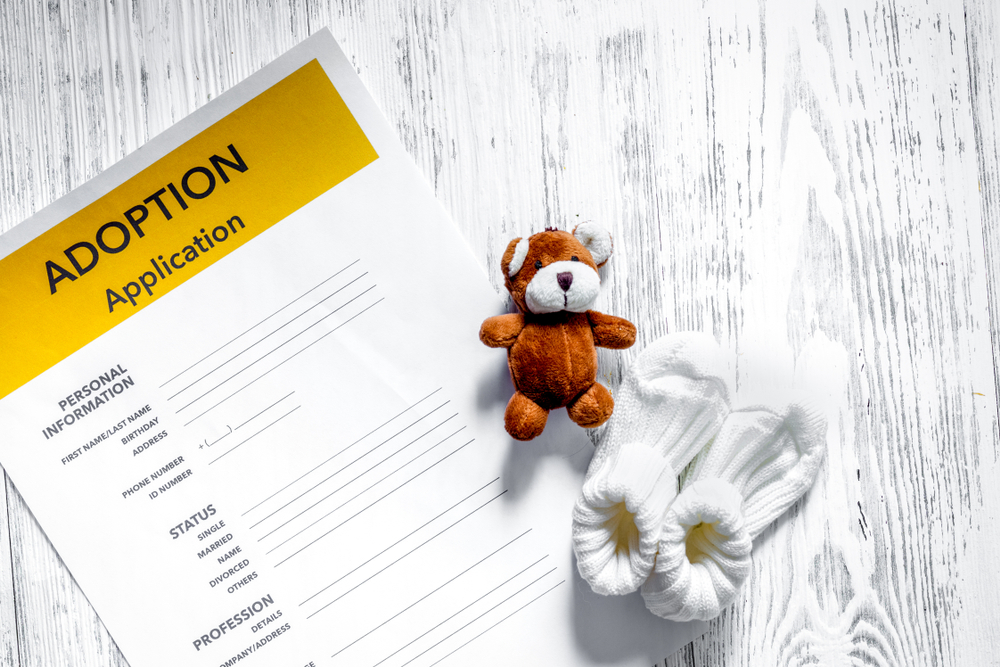Adoption: Everything You Need to Know About Baby Adoption

Adoption is one of the most profound decisions anyone can make, offering a child a chance for a loving home and creating a family in the process. Whether you’re exploring the possibility of adopting a baby or seeking more information on how the adopt process works, this guide is packed with valuable insights. We’ll walk you through everything—from understanding the types of adopt to providing tips for a smooth journey. Let’s dive in!
Why Choose Baby Adoption?
Adopting a baby is a life-changing experience that can bring joy, fulfillment, and meaning. There are many reasons why couples and individuals turn to adoption:
- For Families Unable to Conceive: Some people choose adopt when they face challenges with fertility. Adopt provides an incredible opportunity to create a family and experience the joy of raising a child.
- A Selfless Act of Love: Many couples decide to adopt because they want to offer a loving home to children in need, especially those facing uncertain futures in foster care or orphanages.
- Creating Families in Diverse Ways: Adopt is also an empowering choice for same-sex couples and individuals who want to become parents.
Whatever the reason, adopting a baby is a compassionate decision that changes lives. It’s about providing a safe, nurturing environment for a child to grow, thrive, and find their place in the world.

The Baby Adoption Process
Adopting a baby is not an instantaneous process, but it is certainly a rewarding one. Here’s a simplified breakdown of the essential steps:
- Research and Choose the Right Adopt Agency
The first step is selecting a reputable adopt agency. Whether you’re considering adopting domestically or internationally, your agency will guide you through the entire process. Ensure that the agency is licensed, experienced, and aligned with your values and goals. - Complete Legal Paperwork and Home Study
The legal process begins with filling out adoption applications and undergoing a home study. A social worker will evaluate your living conditions, your financial stability, and your readiness to become a parent. - Match with a Baby
Once all your paperwork is complete, the agency will match you with a baby based on your preferences and their available children. You may be matched with a newborn or a baby of varying age. - Finalizing the Adopt
Once a match is found, you’ll work through the legal steps to finalize the adoption. This typically involves a court process to ensure that all legal aspects of the adoption are in place. Upon finalization, the baby becomes a permanent member of your family.
Types of Adopt: Which Path Is Right for You?
Adopt comes in different forms, and each type has unique requirements and benefits. Here’s an overview of the most common types:
- Domestic Adopt
This involves adopting a child from within your country. In the U.S., domestic adoption can be done through public agencies (often involving children in foster care) or private agencies (with more options for healthy babies). - International Adopt
Some families choose to adopt babies from abroad, particularly when there are fewer children available in their home country. International adoptions come with specific legal requirements and can be more expensive, but they offer the opportunity to adopt children in need from various countries. - Open vs. Closed Adopt
- Open Adopt: In this arrangement, the birth parents and adoptive parents may communicate and share information before and after the adoption.
- Closed Adopt: The birth parents and adoptive parents do not share identifying information, and communication is limited to legal channels.
Each type of adopt has its benefits, and it’s important to choose the one that fits your family’s needs and comfort level.
How to Choose the Right Adopt Agency
Selecting the right agency is critical to having a successful adopt experience. Here are some tips to ensure you make the best choice:
- Agency Reputation:
Research the agency’s reputation by reading reviews and talking to others who have adopted. Look for agencies with a strong track record and a transparent process. - Agency Specialization:
Different agencies specialize in different types of adopt. Make sure to choose one that aligns with your preferences—whether it’s domestic or international, open or closed. - Support Services:
A good agency will provide emotional and legal support throughout the entire adoption process, including post-adopt counseling. - Cost Transparency:
Understand the fees upfront, as adopt costs can vary. Be wary of agencies with hidden fees or those that seem overly expensive without offering clear explanations of their pricing structure.
Financial Help for Adopting a Baby
Adopting a baby can be an expensive process, but there are several financial resources to help alleviate the costs:
- Adoption Tax Credit:
In the U.S., adoptive parents may qualify for a tax credit to help cover adoption expenses. Be sure to check eligibility with your tax professional. - Grants and Loans:
Some organizations provide financial grants or low-interest loans to assist with adoption costs. Research options like the North American Council on Adoptable Children (NACAC) or local non-profits. - Employer Assistance:
Many companies offer adoption assistance programs, including paid leave and financial support. - State Subsidies for Special Needs Adoptions:
If you’re adopting a child with special needs, you may be eligible for state subsidies that help with ongoing care costs.
Common Challenges in Baby Adopt
While the rewards of adoption are immense, the process can come with its challenges. Here are some common hurdles:
- Wait Times:
Depending on your preferences (e.g., age, health, or ethnicity of the child), the wait time for a domestic adoption can vary. International adoptions also have their own timelines due to country-specific requirements. - Emotional and Legal Challenges:
From navigating complex legal paperwork to managing the emotional journey of bonding with an adopted baby, the process can be overwhelming. Patience and a supportive network are key. - Financial Burden:
Adoption can be costly, particularly for international adoptions. However, with financial assistance, tax credits, and grants, the burden can be eased significantly.
Adoption: A Rewarding and Transformative Journey
Adoption is a powerful, life-changing journey that not only provides a home to children in need but also enriches the lives of those who open their hearts to these children. Whether you’re adopting a baby domestically or internationally, understanding the adoption process, knowing your options, and planning financially will help make the experience smoother and more rewarding.
Remember, adoption is about more than just filling out paperwork—it’s about providing love, support, and a future for a child. If you’re ready to begin your family-building journey, adoption is a beautiful, fulfilling way to do so.
Read Also:








